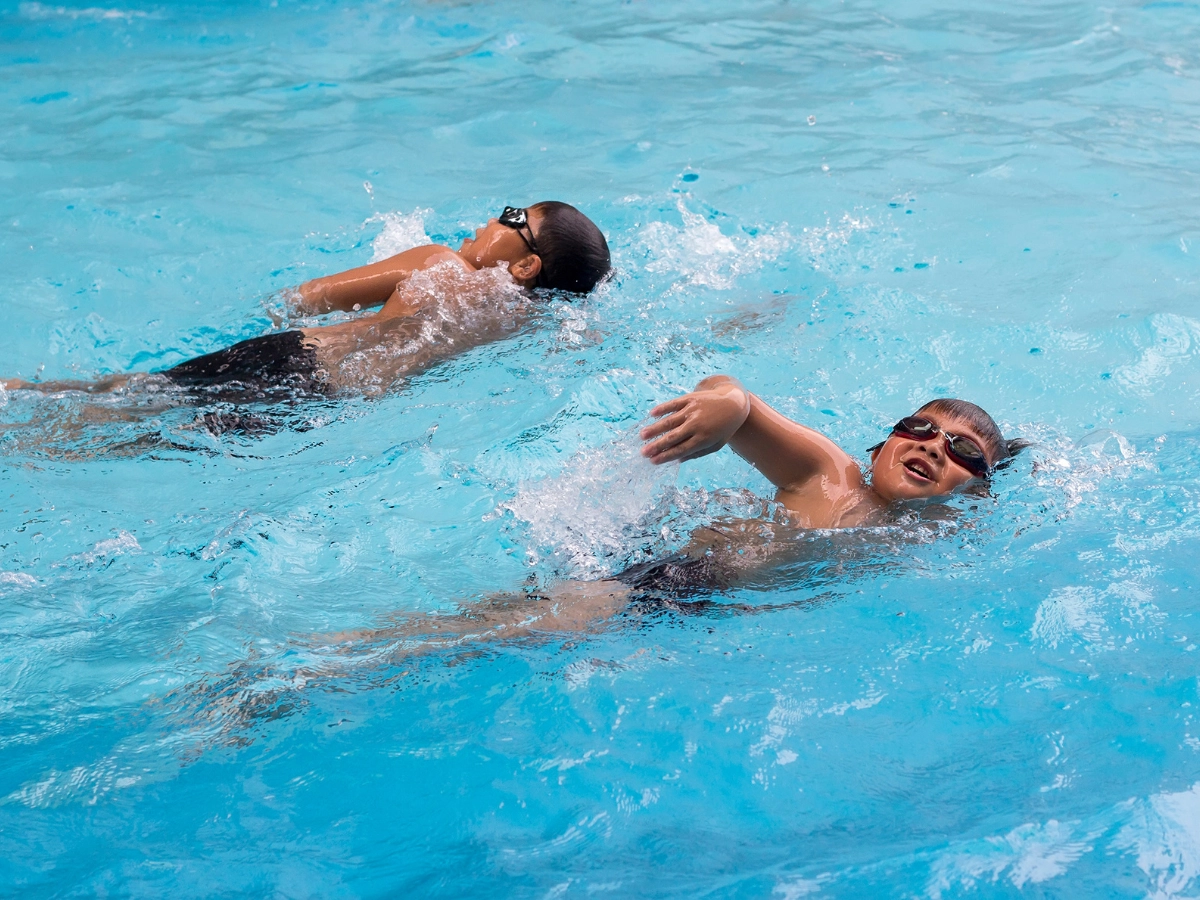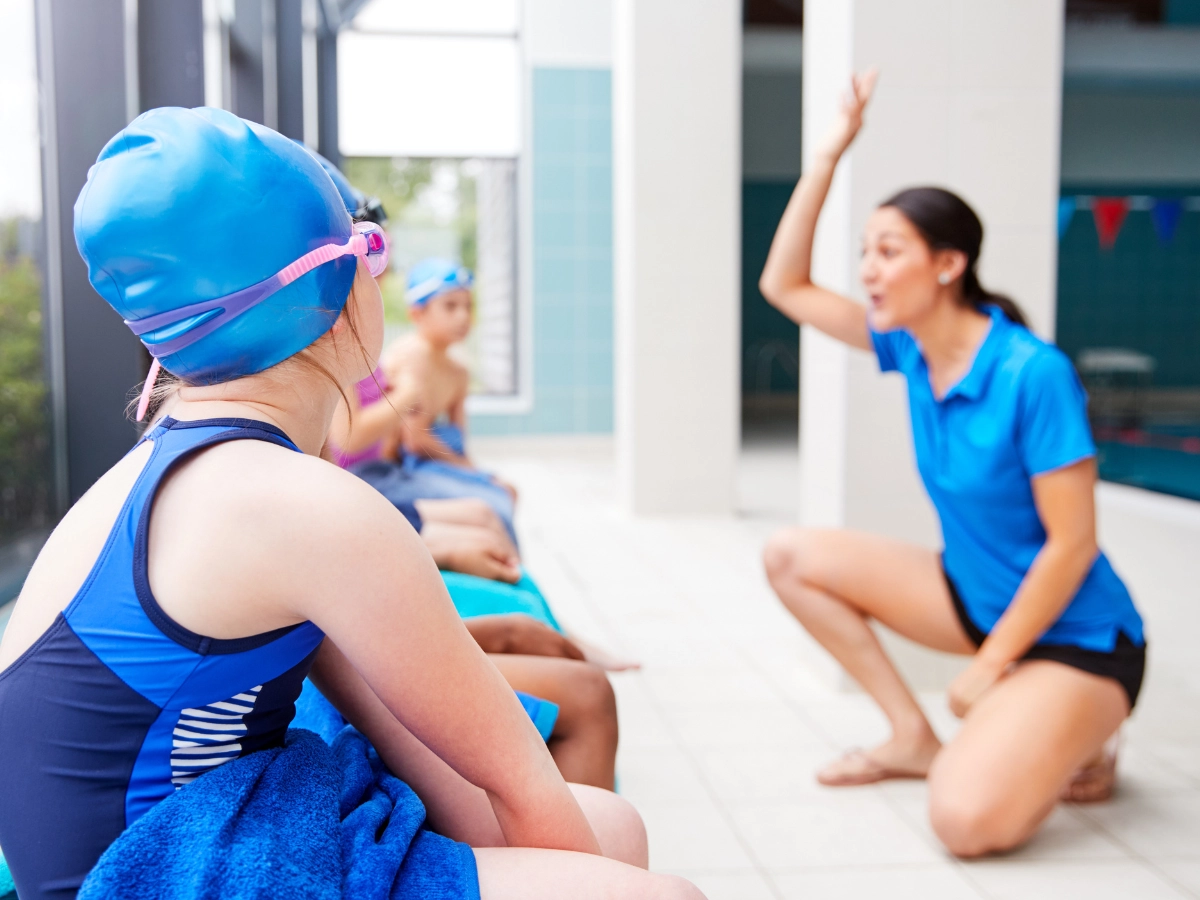It makes sense that all parents want their children to come out of their youth sports experience a winner – to feel good about themselves and have healthy attitudes towards sports. But children need help from their parents to do this.
Parents are an important part of the “team” (coach-instructor/athlete/parent) required to make your child successful in sports.
If parents do their job correctly and play the position well, the child will learn the sport faster, perform better and really have fun. And they will get a self-esteem boost too. Parents can play an important role in making sure their children’s sports experience is a positive model to follow as children approach other challenges and obstacles in their lives.
Failing to uphold the parental role on the team means that children may stop learning, experience performance difficulties and begin to really hate the sport. This can also impact the parent-child relationship…
Children can come out of this experience burdened with feelings of failure, inadequacy and low self-esteem. These are feelings that can transfer to other areas of life for these children.
So obviously children and coaches need parents on the team.
How can parents really help their children by fulfilling the role that their children need for them to fulfill for their youth sports experience? Consider the following for valuable facts, concepts and advice.
Competition
When defined correctly, competition in youth sports is good and healthy. It teaches children a variety of important life skills. The definition of competition is a seeking together where your opponent is your partner, not the enemy. The better your opponent performs the more chance you have of having a peak performance.
Sport is about learning to deal with challenges and obstacles. Without a worthy opponent or challenge sport is not much fun.
World records are consistently broken and set at the Olympics because the best athletes in the world are challenging each other to have their best performance. Children should never be taught to view opponents as the “bad guys”. The opponent is not the enemy or someone to be hated and “destroyed”. Root for great performances, good plays, not just for your child to be the winner!
Children should be encouraged to compete against themselves. The ultimate goal of the sport experience is to challenge oneself to continually improve. Judging improvement by whether children win or lose is unfair and inaccurate. Winning in sports is each participant having the best possible performance that they can manage. This should be separate from the play or outcome of the opponent.
Children should be encouraged to compete against their own potential. When they focus and play to better themselves instead of beating someone else, children will be more relaxed, have more fun and perform better.
Success and Failure
Don’t define success and failure in terms of winning and losing. One of the main purposes of the youth sports experience is skill acquisition and a feeling of accomplishment. When children perform to their potential and lose- it is a tremendous mistake to focus on outcomes and become critical.
In children play their very best and lose, the parental role is to help them see the positive in the experience, to understand how it has helped them improved and learned how to have a better chance to win next time. Similarly, when children or teams perform far below their potential but win, they should understand why this is not being a winner. After all, a winner would have made their best effort. This is an important way to separate success and failure from winning and losing.
Be a supporter, not a coach-instructor.
The parental role is not coaching or instructing. The parent supports the player and is the child’s best fan – unconditionally.
Leave the coaching and instruction to the coach. Provide encouragement, support, empathy, transportation, money, help with fund-raising but don’t coach. If you take a step over into coaching or instructing you abandon the parental role and no one else is going to fill it. Without it, children cannot have a successful youth sports experience.
It is best to keep your role as a parent on the team separate from that as coach. If, by necessity you actually get stuck in the no-win position of having to coach your child, try to maintain this separation of roles. For example, you can even say on the deck or field or court, “‘Now I’m talking to you as a coach or instructor”, at home you can say, “‘Now I’m talking to you as a parent”. You can’t take on both of these roles simultaneously.
Make it fun.
It’s has been proven that the more fun an athlete is having, the more he will learn and the better he will perform. Without fun, you cannot have peak performance – at every level of sports from youth to world class competitor. When a child stops having fun and begins to dread practice or competition, it is time for the parent to become concerned.
What can prevent fun? Is it the coaching? Is it the pressure? Is it you? Keep in mind that being in a highly competitive program does not mean that there is no room for fun.
Whose goal is it?
Why is your child participating in the sport? The value of the experience just doesn’t exist if your child is not the one who wants to participate in the sport. They must do it for themselves not for you.
They should also not be participating because of any reward that you’ve promised them. No value comes from participation for the wrong reasons. Ultimately, everyone loses in this situation. It is normal and healthy for a parent to want their child to excel and be as successful as possible. But this won’t happen through pressure tactics, guilt or bribery. Participating to reach their own goals will make them far more successful.
Unconditional love.
Children’s performance should never be correlated to their self-worth or how much they are loved.
Punishing children for poor performance by withdrawing emotionally from them can be very damaging.
In the 1988 Olympics, when Greg Louganis needed and got a perfect l0 on his last dive to overtake the Chinese diver for the gold medal, his last thought before he went was, “‘If I don’t make it, my mother will still love me”.
Athletes of all ages and levels perform in direct relationship to how they feel about themselves. When children are in athletic environments that boost their self-esteem, they learn faster, enjoy themselves more and perform better under competitive pressure. This does not mean that children have to constantly be complimented for a great effort after performing miserably. It means understanding how to be empathic and sensitive to feelings. Make children feel good about themselves and they have a gift that lasts a lifetime. Do not degrade or embarrass or humiliate them. If children are continually put down or their accomplishments minimized, this is the way they will treat themselves throughout their life.
Allow failure.
The most successful people in and out of sports do two things differently than everyone else. They are more willing to take risks and therefore fail more frequently. And they use their failures in a positive way as a source of motivation and feedback to improve. Our society is generally negative and teaches us that failure is bad, a cause for humiliation and embarrassment and something to be avoided at all costs. Fear of failure or humiliation causes one to be tentative and non-active. In fact, most performance blocks and poor performances are a direct result of the athlete being preoccupied with failing or messing up.
Challenge them, don’t threaten them.
Many parents directly or indirectly use guilt and threats as a way to “motivate” their child to perform better. Performance studies clearly indicate that while threats may provide short term results, the long term costs in terms of psychological health and performance are devastating. Using fear as a motivator is probably one of the worst dynamics you could set up with your child. Threats take the fun out of performance and directly lead to your child performing terribly.
Make it about outcome.
Skill acquisition, mastery and having fun are far more important than winning. When athletes choke under pressure and perform far below their potential, a very common cause of this is a focus on the outcome of the performance. Don’t misunderstand, winning is great. It is not the ultimate goals but a by-product of the reaching peak performance.
By focusing on outcome, the child will be distracted and tighten up – insuring a bad performance. Focusing on the outcome, which is completely out of the child’s control, raises his anxiety to a performance inhibiting level. To truly help children win, help them get their focus away from the contest and hone in on the task at hand. Supportive parents de-emphasize winning and instead stress learning the skills and playing the game.
Avoid comparison.
Supportive parents do not use others (that their children compete against) for comparison in evaluating progress. Comparisons are useless, inaccurate and destructive. Each child matures differently and the process of comparison ignores significant distorting effects of developmental differences.
Performance comparisons can prematurely turn otherwise skilled children away from their sport. The only value of comparisons is in teaching. If one child demonstrates proper technique, that child can be used comparatively as a model.
Teach perspective.
Our sports media would like everyone to believe that sports and winning or losing are larger than life. The fact is that it is just a game. That frequently gets lost in translation and this often trickles down to the youth sport level and young athletes often come away from competition with a distorted view of themselves and how they performed. Parents need to help their children develop realistic expectations about themselves, their abilities and how they played – without robbing them of their dreams.
Condensed from an article by sports psychologist Dr. Alan Goldberg














